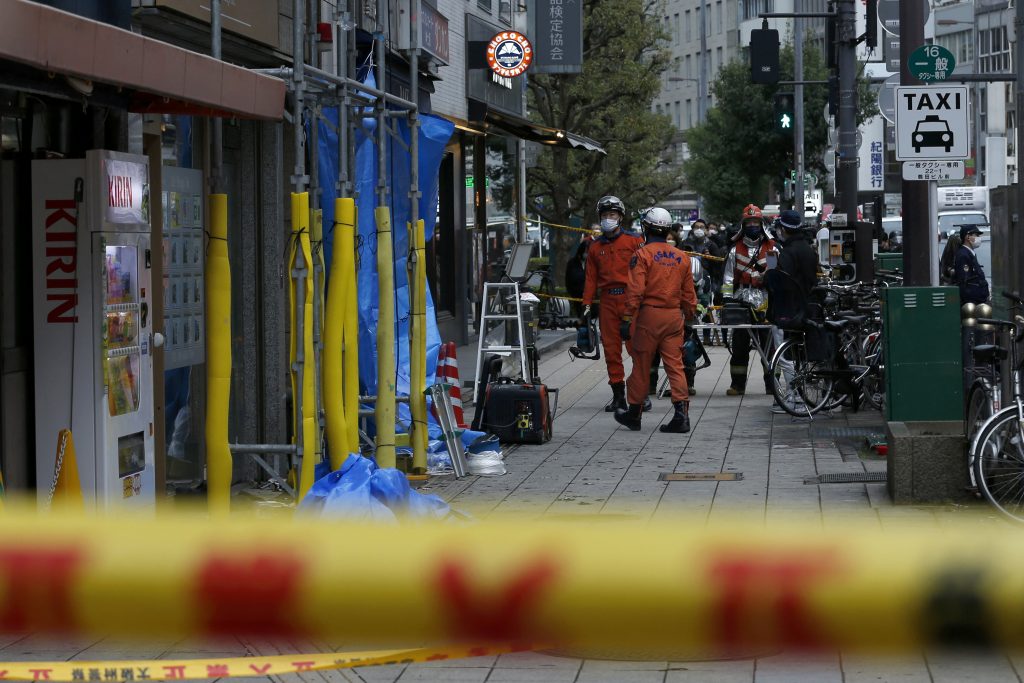
- ARAB NEWS
- 20 Apr 2024

TOKYO: The deceased suspect in a deadly arson attack on a mental health clinic in the western Japan city of Osaka may have tried to commit so-called extended suicide triggered by a strong extrapunitive tendency, according to an expert.
With Friday marking two weeks since the fire broke out at the clinic in a building in the city’s Kita Ward, the Osaka prefectural police believe that the suspect, Morio Tanimoto, a patient of the clinic, plowed through the flames, taking a large number of people with him.
The police said there are no signs that Tanimoto, who died on Thursday at the age of 61, had tried to escape even after he allegedly set fire to the clinic on Dec. 17. He was found lying on the floor near a door located near the center of the clinic.
A total of 26 people were found at the back of the clinic, which was separated by the door. Of them, 25 were confirmed dead.
While the Osaka police suspect that Tanimoto had trapped the people inside, they have not found any evidence pointing to issues between the suspect and the clinic.
Tamami Katada, a psychiatrist who has written a book on extended suicide, said that the arson attack is such a case, in which an individual with a wish to take his or her own life commits mass murder with hopes to take others along.
According to Katada, many people with suicidal thoughts tend to blame themselves.
Some people, however, develop a strong extrapunitive reaction, in which they blame others for misfortunes in their lives. In such cases, they may commit mass murder out of revenge, Katada said.
In 2011, Tanimoto was given a prison sentence for attempting to kill a son, then 25. On the case, determined by a court as a failed murder-suicide, the court said in its ruling that Tanimoto had tried to cast aside any hesitation about ending his own life by trying to take his son, who had not been living with him at the time, and others with him, with his loneliness after divorce becoming too much to bear.
Katada said that she believes Tanimoto faced economic poverty and isolation after being released from prison.
Tanimoto may have developed a strong tendency to blame others and entangled other people, including the clinic’s head, with whom he shared a connection as a patient, and other clinic patients, as collateral victims in the latest arson attack, she said.
After having been in critical condition due to severe inhalation burns and carbon monoxide poisoning, the suspect was confirmed dead on Thursday.
JIJI Press